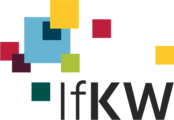
Our research aims to fundamentally describe and explain structures, processes and modes of action within modern communication environments. We investigate how the changing forms of (partially) public online environments influence individual communication and perception processes and social contexts – with special focus on public science issues. The focus of our empirical research is on digital communication and science communication. In our numerous research projects, we analyse users’ communication, information and participation behaviour as well as aspects of digital literacy, knowledge negotiation and trust relationships among science, media and the general public.
We understand our research subjects as interdisciplinary phenomena and therefore approach them collaboratively from multiple perspectives. We set goals, but at the same time subject our work to a constant process of reflection focused on methods and perspectives. Openness to innovative approaches and critical consideration of existing structures create space for creative ways of thinking. We implement our expertise with conviction, motivation and passion.
We work using theories and established communication science approaches - but we also develop theory. To achieve our research goals, we draw on a broad portfolio of empirical methods and combine quantitative and qualitative research approaches. We link traditional methods (e. g. standardised surveys or partially standardised group discussions) with innovative approaches (e. g. eye-tracking analyses).
Our work is embedded in a lively network both within and outside the discipline. With our research, we participate in current discourses in communication science and are involved in the national and international scientific community. Moreover, we are engaged in discussions with the general public and with communicators, especially in Braunschweig as a scientific centre. The experience we gain in this process enriches our scientific discussions.
Our teaching and learning culture focuses not only on teaching theoretical content and methodological skills, but also on the personal development of the students. We encourage and demand a committed, independent as well as convincing scientific way of working. To this end, we use and develop innovative teaching concepts (e. g. with flipped classroom and game-based learning approaches) in which students participate in a creative way, thereby strengthening their scientific skills and abilities.
We encourage our students to develop their own topic interests and research ideas and to implement them independently in empirical projects. We understand the work of students as an individual qualification (e. g. as a thesis) as well as a contribution to research in communication science. We actively involve students in the research activities of our institute as part of our teaching programmes.